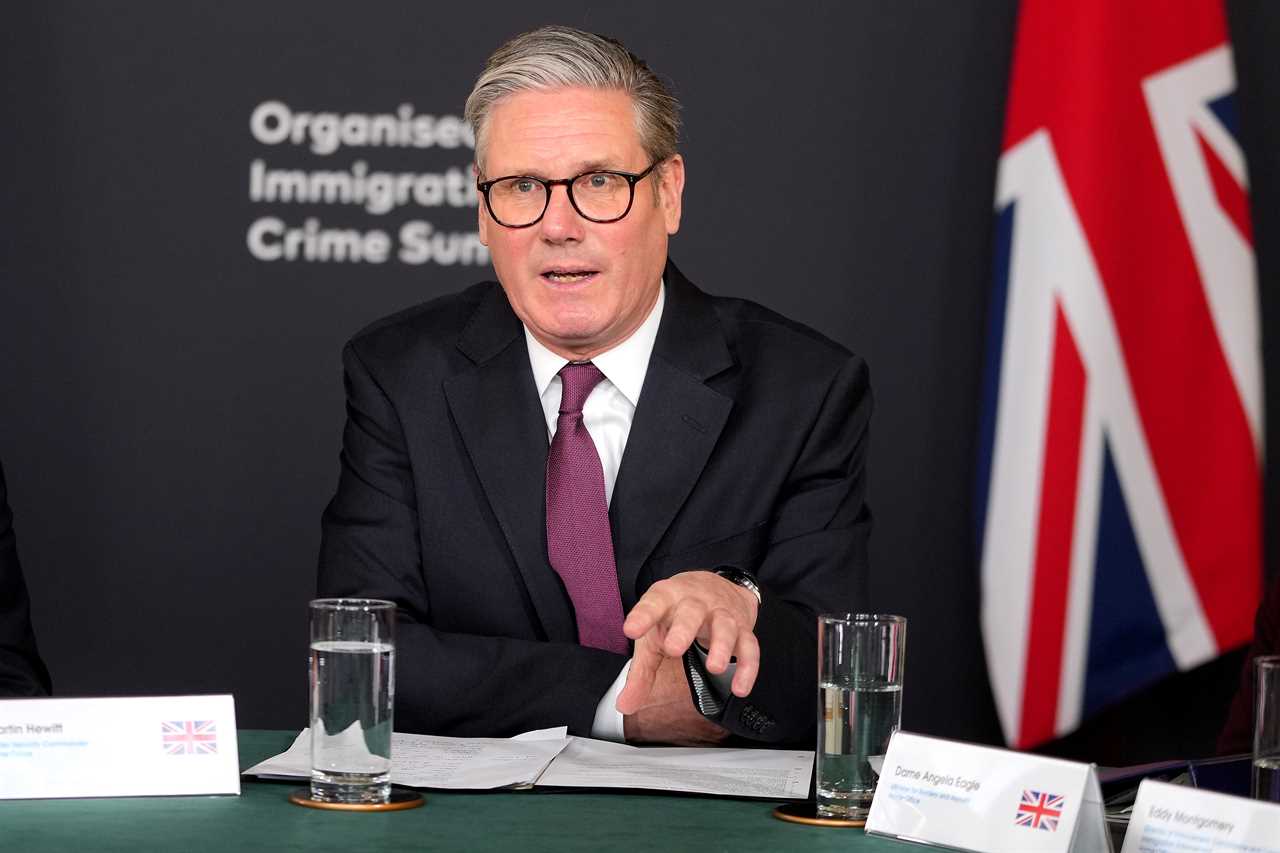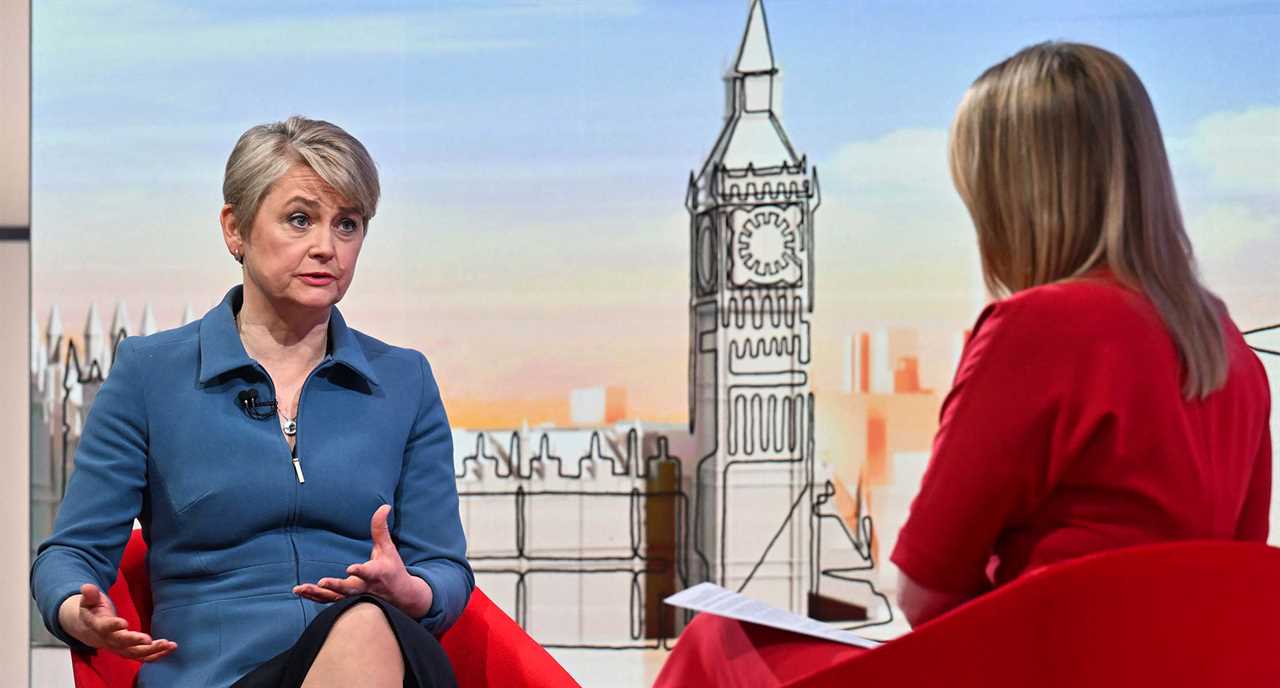
Prime Minister Slams Inadequate Measures on Migration
Prime Minister Sir Keir Starmer has voiced strong condemnation of the UK’s current approach to illegal immigration, declaring that it "makes me angry." Speaking at the inaugural Organised Immigration Crime Summit in London, Starmer drew parallels between people-smuggling gangs and terrorist organizations, highlighting the severe impact these groups have on national security.
Illegal Migration Fuels Global Instability
Addressing the summit, Starmer emphasized that illegal migration is a significant contributor to global instability. "Illegal migration is a massive driver of global insecurity," he stated, underscoring the challenges it poses to controlling the country’s borders. He expressed frustration over the strain placed on public services and the financial burden borne by ordinary working people, attributing these issues to unchecked illegal crossings.
Exploitation by Ruthless Smuggling Networks
The Prime Minister condemned the exploitation of vulnerable migrants by unscrupulous gangs. He highlighted the unfairness faced by both British citizens and illegal migrants, pointing out that the latter are often subjected to deplorable conditions and severe exploitation. "These are vulnerable people being ruthlessly exploited by vile gangs," Starmer remarked, calling for immediate action to dismantle these criminal networks.
Admission of Past Leniency on Illegal Work
Starmer acknowledged that the UK has previously been too lenient in addressing illegal working. He criticized the former government’s policies, specifically targeting the "Rwanda gimmick," which he claimed left the door open for illegal employment. According to Starmer, sectors such as construction, beauty salons, and courier services have seen an increase in illegal workers, which undermines legitimate businesses and depresses wages for honest workers.

Crackdown on Rogue Employers Announced
In response to these challenges, Starmer announced a rigorous crackdown on businesses that fail to comply with immigration laws. A new law will mandate that firms conduct thorough Right to Work checks, with severe penalties for non-compliance. Companies found in violation could face fines up to £60,000, imprisonment for up to five years, and potential closure of their operations. "Failure to comply will result in hefty fines, prison terms, and possible business shutdowns," the Prime Minister stated.
International Collaboration to Combat Trafficking
The summit saw participation from leaders and ministers from over 40 countries, including France, the US, and China. Officials from Albania, Vietnam, and Iraq, key countries from which many migrants originate, were also present. The collaborative effort aims to address and dismantle global trafficking routes and the illicit financial flows that support them.
Significant Funding Allocated to Tackle Migration Issues
New policy measures were unveiled during the summit, featuring a substantial allocation of £30 million dedicated to disrupting global trafficking networks and the illegal financial transactions that sustain them. Additionally, £3 million has been earmarked for the Crown Prosecution Service to expand its international operations, enhancing the UK’s capacity to prosecute those involved in organized immigration crime.
Impact on British Workers and Communities
Starmer highlighted the detrimental effects of illegal immigration on British workers, noting that the entry of undocumented workers leads to lower wages, reduced terms, and poorer working conditions within communities. He argued that these factors contribute to dissatisfaction among the workforce and undermine the quality of life for many citizens.
Addressing the Root Causes of Illegal Migration
Beyond tightening border controls and enforcing stricter penalties, Starmer’s agenda includes addressing the root causes that drive individuals to seek illegal entry into the UK. By targeting the criminal networks that facilitate these journeys and providing support to vulnerable populations, the government aims to create a more secure and fair immigration system.
Commitment to Fairness and Security
Throughout his address, Starmer reiterated his commitment to fairness and security. He emphasized that protecting the nation’s borders is not only about maintaining order but also about ensuring that ordinary citizens are not disadvantaged by the actions of a few. "It is unfair on ordinary working people who pay the price," Starmer concluded, reinforcing his dedication to implementing robust immigration policies.
Frequently Asked Questions
How does international politics affect domestic policy?
International politics can significantly influence domestic policy through trade agreements, foreign aid, and security alliances. Governments must balance international relations with the needs and interests of their citizens, often leading to complex policy decisions.
What is the role of a politician?
A politician is an individual who is actively involved in politics, typically as a member of a political party or a government. Their primary role includes representing the interests of their constituents, making decisions on public policy, and contributing to the legislative process.
What is the role of the judiciary in politics?
The judiciary interprets and applies the law, ensuring justice and upholding the constitution. It serves as a check on the powers of the legislative and executive branches, protecting individual rights and maintaining the rule of law.
What is the significance of public opinion in politics?
Public opinion reflects the attitudes and beliefs of the populace regarding political issues and leaders. It can shape policy decisions, influence electoral outcomes, and motivate politicians to respond to the needs and concerns of their constituents.
How are politicians elected?
Politicians are elected through various electoral processes, which may include direct elections, where voters cast their ballots for candidates, or indirect elections, where representatives are chosen by an electoral college or other bodies. The specifics can vary by country and the level of government.
What is voter suppression?
Voter suppression refers to tactics used to discourage or prevent specific groups of people from voting. These tactics can include strict ID laws, limited access to polling places, and misinformation about voting procedures.
How does lobbying influence politics?
Lobbying involves advocating for specific interests or causes to influence lawmakers and policy decisions. While lobbying can provide valuable information to legislators, it can also lead to concerns about undue influence and corruption.
Statistics
- In 2022, over 30 countries experienced significant protests related to political issues, highlighting a global trend of civil unrest and demands for accountability.
- Surveys show that nearly 70% of voters prioritize environmental issues when selecting candidates for public office.
- Approximately 90% of political campaigns in the U.S. utilize social media as a primary tool for outreach and engagement with voters.
- Studies show that political polarization has increased significantly, with 80% of individuals stating they have little to no contact with those of opposing political views.
- According to recent studies, around 75% of Americans believe that campaign financing significantly impacts election outcomes.
- As of 2023, approximately 25% of countries have implemented some form of digital voting, reflecting the shift towards technology in the electoral process.
- As of 2023, women hold 27% of seats in the global parliament, reflecting ongoing efforts toward gender equality in political representation.
- Historically, voter turnout among young people (ages 18-29) increased by 50% from the previous election cycle in the 2020 presidential election.
External Links
How To
How To Participate in Political Debates
Participating in political debates requires preparation and composure. Begin by researching the topics to be discussed, ensuring you have a solid understanding of various perspectives. Prepare your arguments and anticipate counterarguments, allowing for a well-rounded discussion. Practice articulating your points clearly and confidently. During the debate, listen actively to others and respond thoughtfully, maintaining respect even in disagreement. Engaging with the audience and using credible evidence to support your claims can enhance your effectiveness in the debate setting.
 PoliticsRoyaltySoap OperaGamingMoneyPrivacy PolicyTerms And Conditions
PoliticsRoyaltySoap OperaGamingMoneyPrivacy PolicyTerms And Conditions
